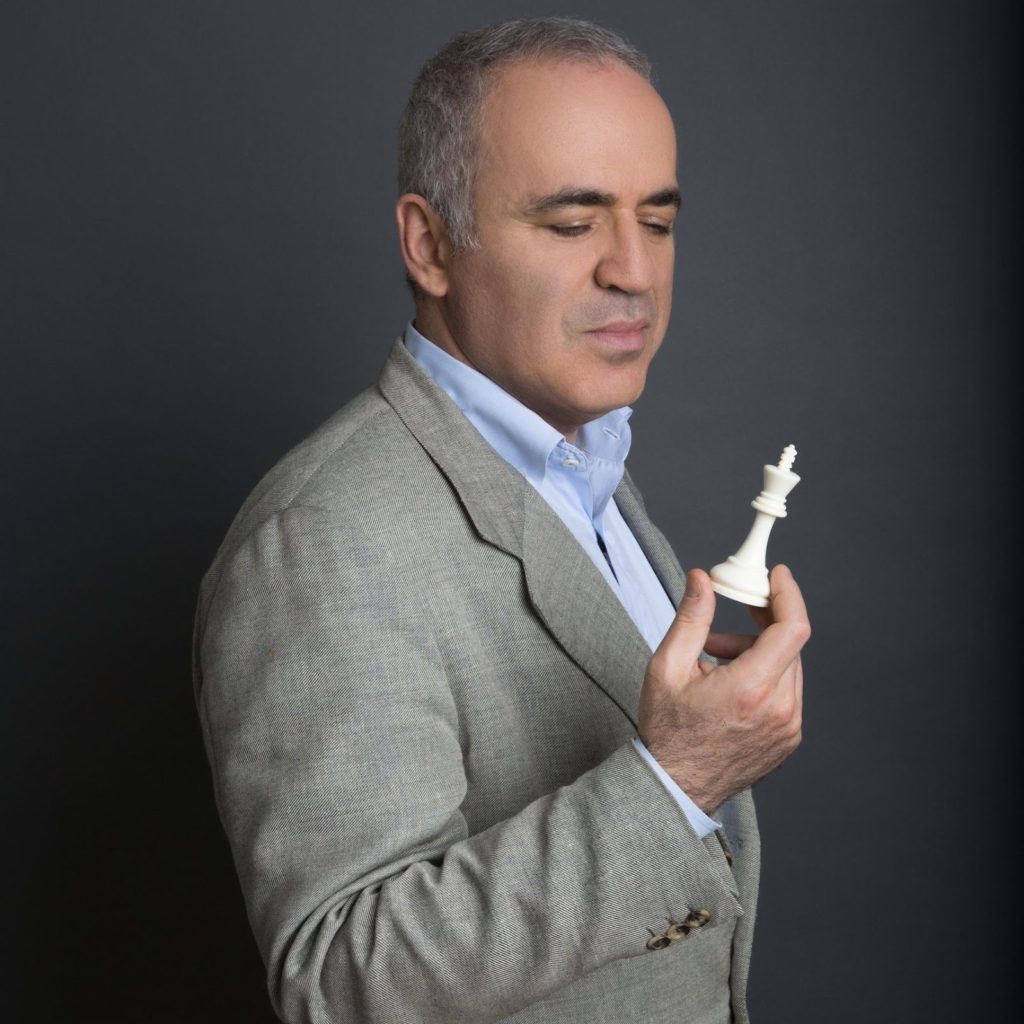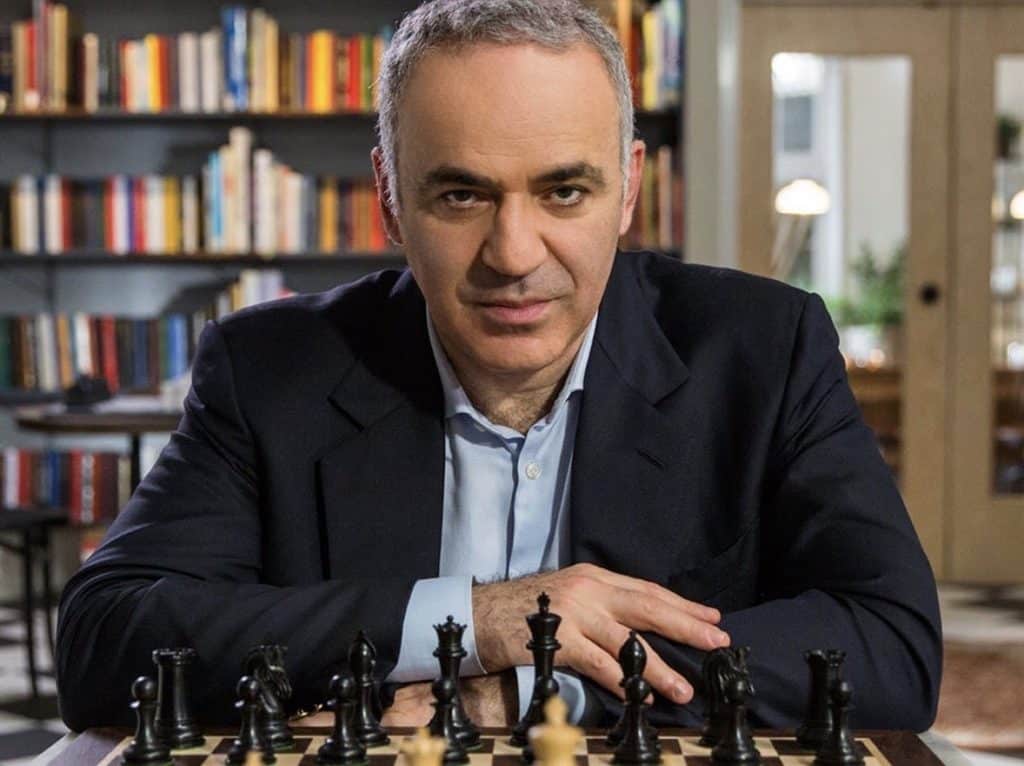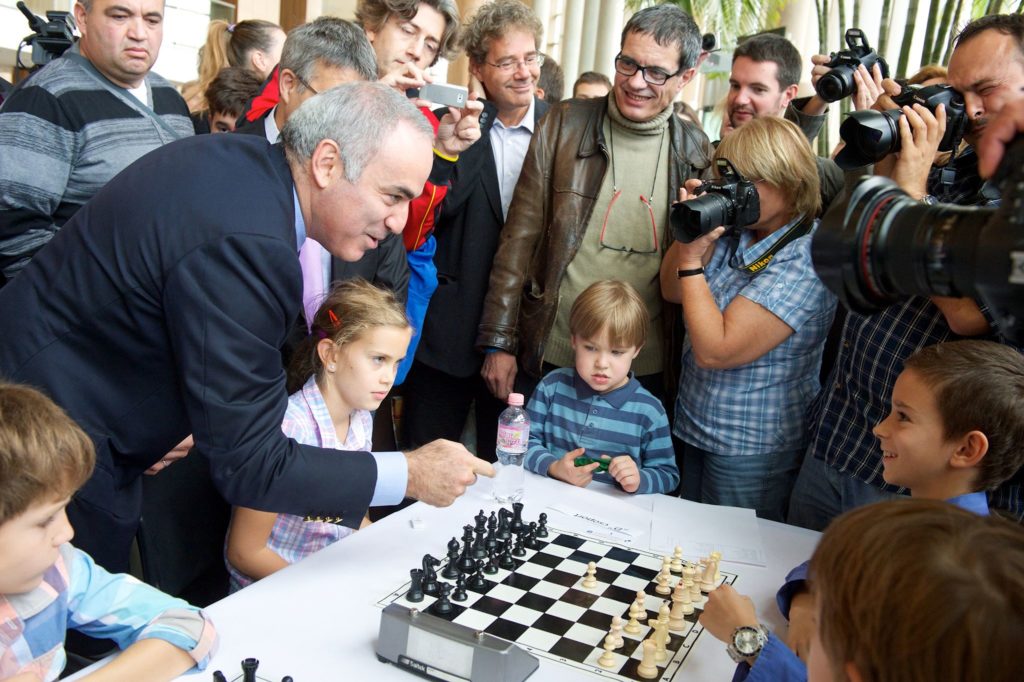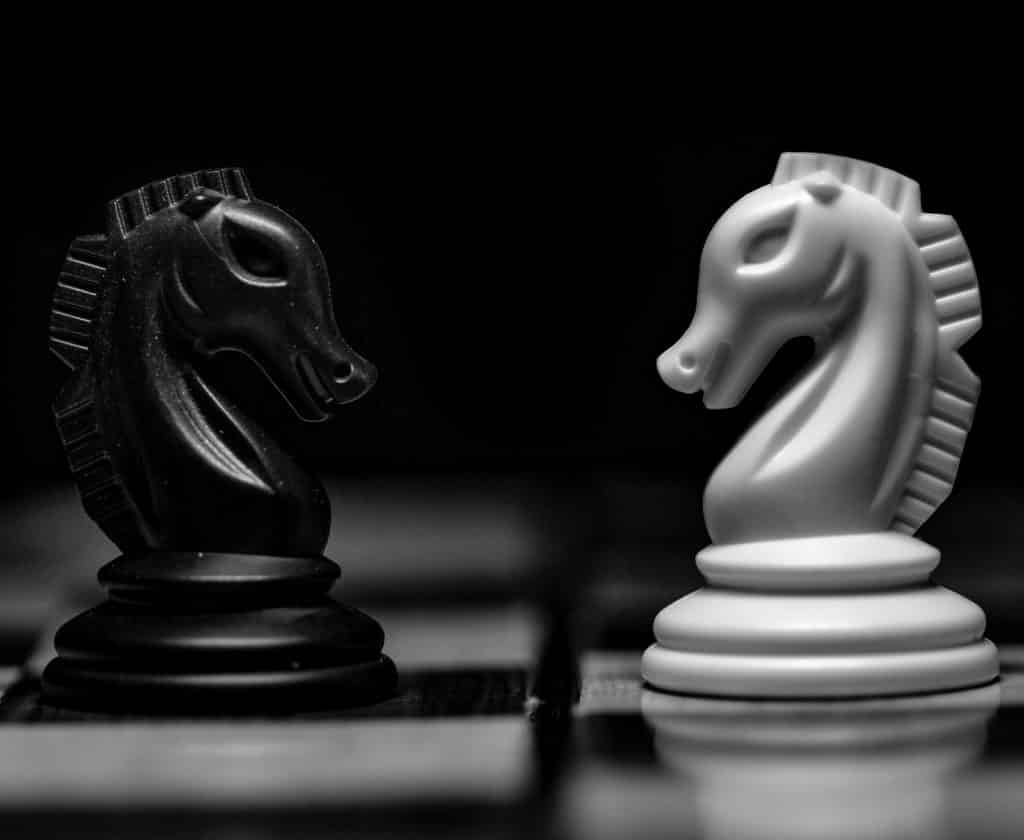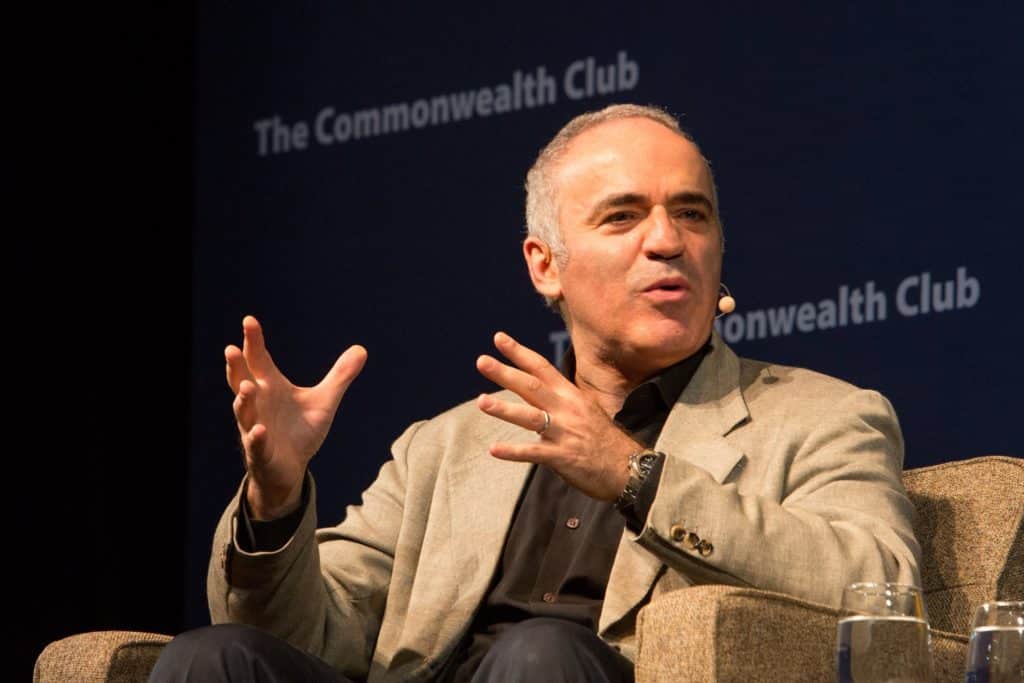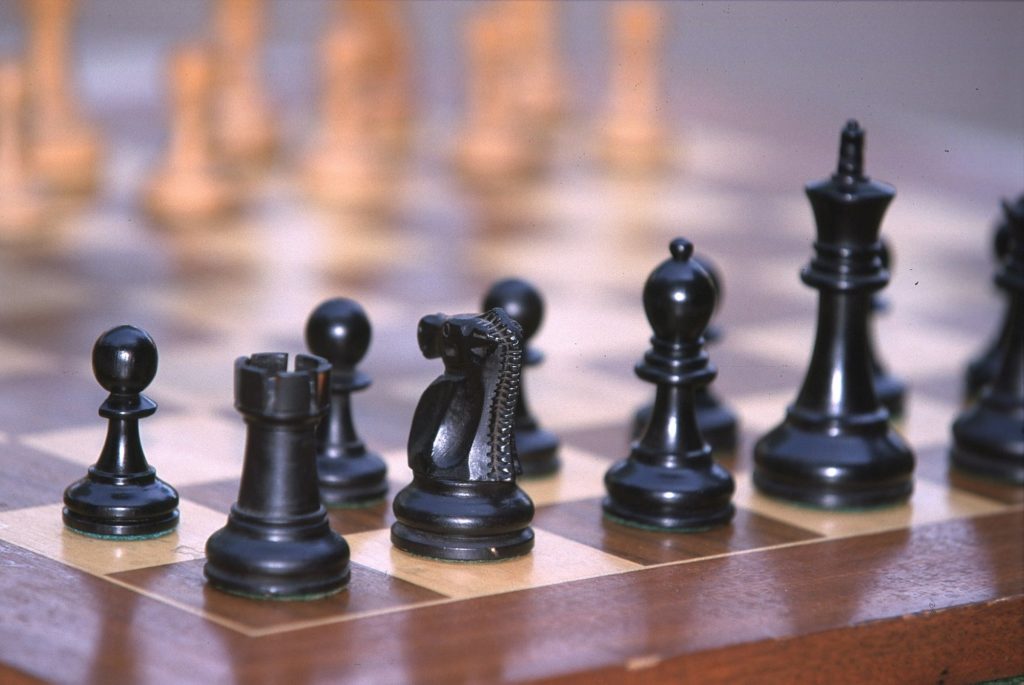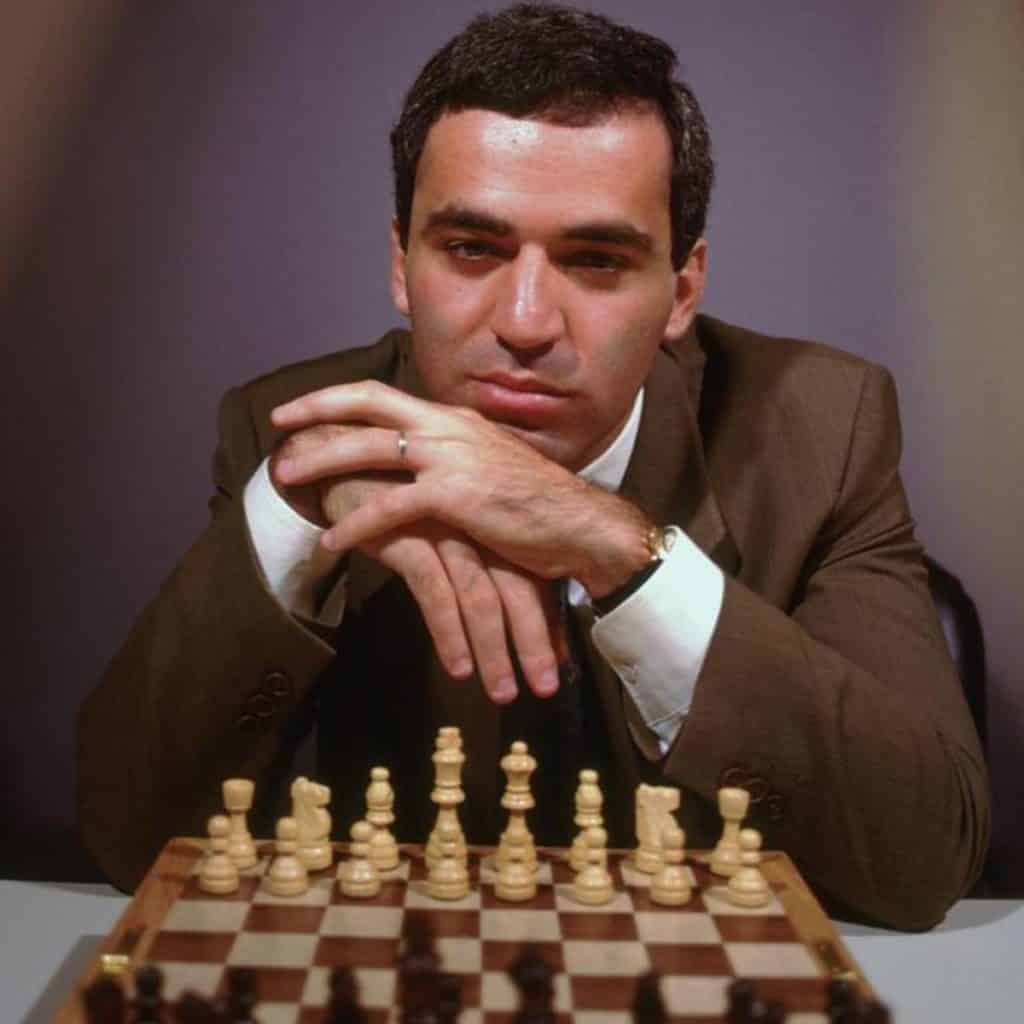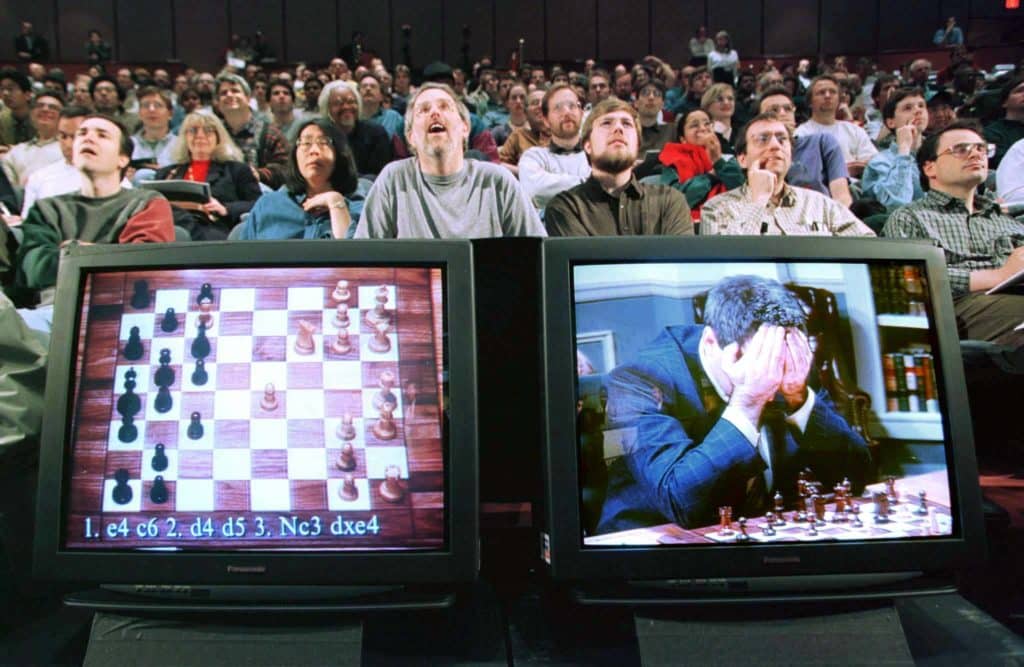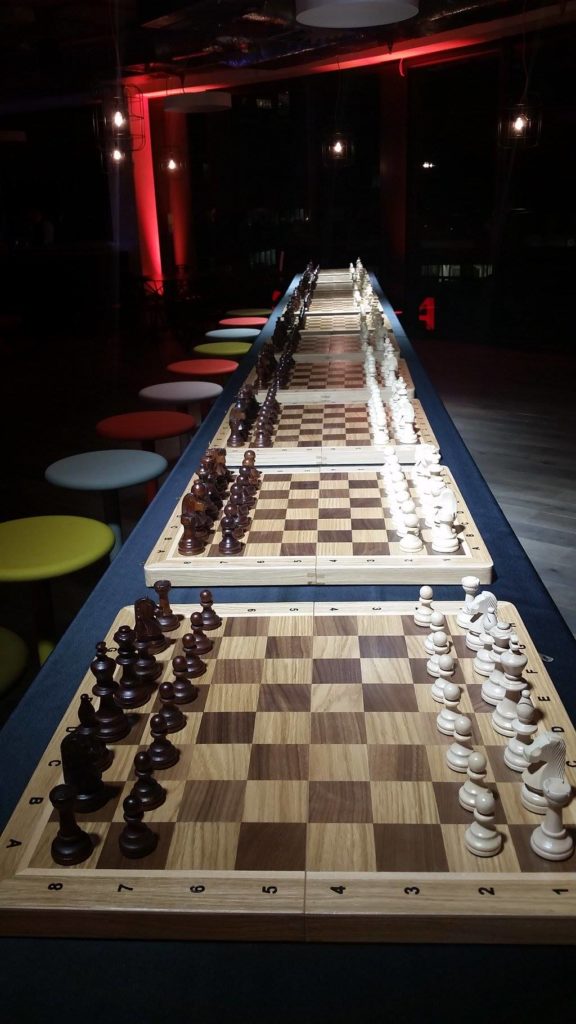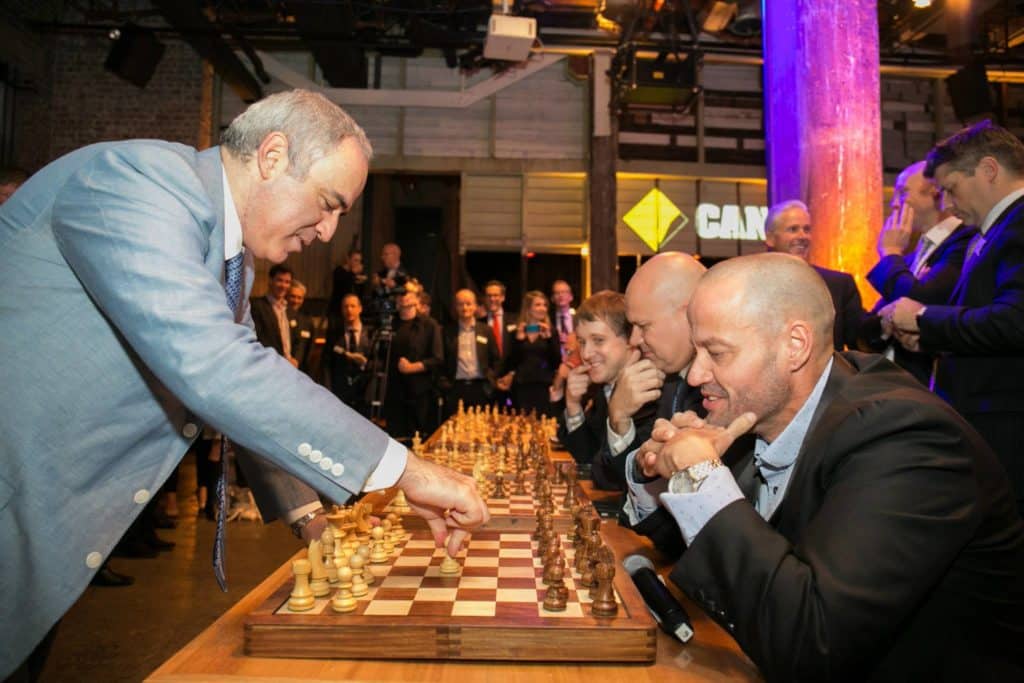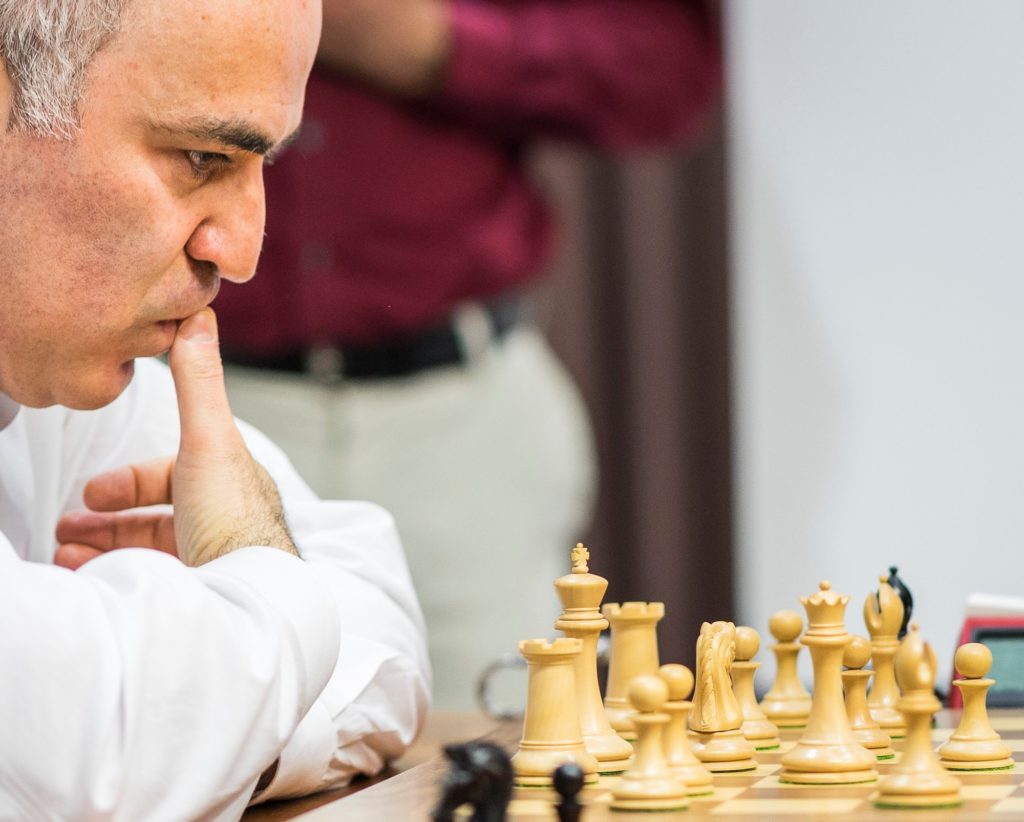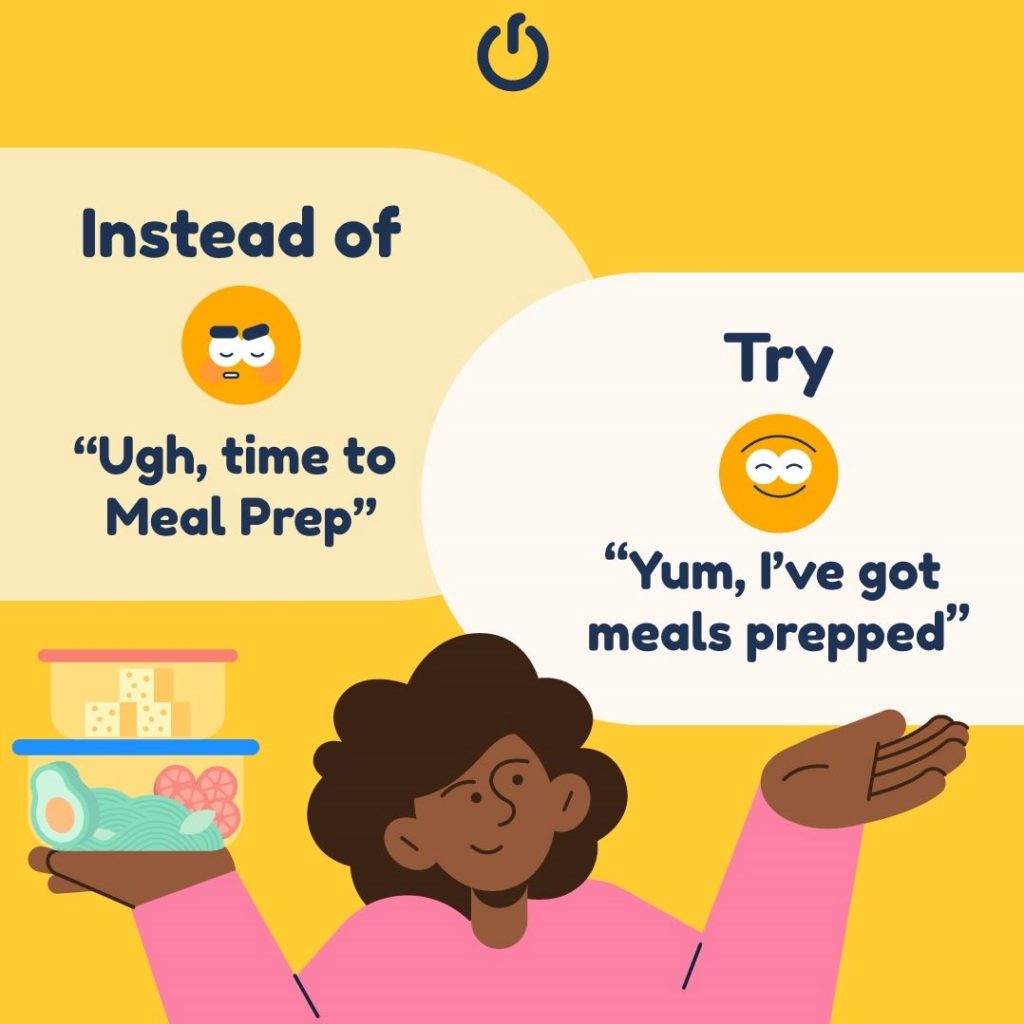Garry Kasparov MasterClass Review
About Garry Kasparov MasterClass
Garry Kasparov is a 6-time world chess champion, known for being the world’s youngest Chess Grandmaster at 22, taking on IBM computer Deep Blue, and having one the world’s highest IQs. In his MasterClass, Garry Kasparov teaches chess through his own experiences to help you become a “better chess player and a better decision maker”.
A Chess.com article cites the 10 ‘big brain’ benefits of playing chess, including raising your IQ. Being a professional chess player, what is Garry Kasparov’s IQ? He clocks in between 185- 190. To put that into perspective, Albert Einstein is estimated to have had an IQ of 160.
Other benefits of playing chess include: helping to prevent Alzheimer’s, exercising both sides of the brain, increasing creativity, improving memory, improving problem solving, enhancing reading skills, improving concentration, teaching, planning, and foresight. The Garry Kasparov MasterClass can be your next step in developing those skills.
This Garry Kasparov MasterClass review will give you an overview of the course and the types of lessons you can expect. We’ll get into feedback from people who have taken the Garry Kasparov chess lesson online, how much it costs, and MasterClass promotions, to help you make an informed decision whether or not to try it out.
Who is Garry Kasparov?
Garry Kasparov, from the early age of 6, began studying the game after solving a chess problem set up by his parents. A few years later, he won a tournament in Minsk and officially became a chess master. In his MasterClass, Kasparov says this event was what encouraged him to pursue a chess career.
Throughout his chess career, Garry Kasparov won 11 Chess Oscars and 15 consecutive professional tournament victories, which established world records. His other accolades include achieving a world record Elo rating of 2851 in 1999, which has now only been broken by one of his students, Magnus Carlsen.
Although he retired from chess in 2005, from the year 1984 to the year 2000 Kasparov was the chess champion of the world. In 1985, at age 22, he was the youngest ever World Chess Champion, otherwise referred to as a Chess Grandmaster.
Although the MasterClass host lost to the IBM computer, Deep Blue, his 1997 match was technically a record, as the first defeat of a reigning world chess champion by a computer under tournament conditions. There is even a movie made about it, The Man vs. The Machine.
Kasparov has written several books over his lifetime and continues to write after his retirement. He has a wealth of knowledge and now shares it in his MasterClass.
Garry Kasparov Teaches Chess
The Garry Kasparov MasterClass consists of 29 video lessons for a total of 7 hours and 20 minutes of learning. Topics such as Double Attacks, Interference, and Mental Toughness, comes through Garry’s personal experience as a chess champion and includes tough lessons he learned along the way.
In his MasterClass, Garry Kasparov teaches you advanced strategy, tactics, and chess theory. The course is for anyone who likes chess and wants to improve their game.
Lessons in the Grandmaster’s course translate to important life lessons, including decision making, self-reflection, and persistence. Garry Kasparov MasterClass subtitles are an option for the course as well.
Sneak Peek: Garry’s Chess Fundamentals
In Garry’s Chess Fundamentals, the Grandmaster quotes an old chess saying: “Tactics is knowing what to do when there is something to do, while strategy is knowing what to do when there is nothing to do.”
Topics featured the 18 min. Garry’s Chess Fundamentals lesson include:
- Strategies vs. Tactics
- Your Personal Playing Style
- Pattern Recognition
- Even in Chess, Timing is Everything
- Sensing the Important Moments
- A Game with Two Players
- Make Your Opponent Squirm
- Solve Using a Board
One of Kasparov’s fundamentals is that “it’s very important to realize that, no matter what you do, it should fit your personality.” This Garry Kasparov MasterClass review appreciates this approach to chess, as it parallels many aspects of real life.
Another life/chess lesson: “Don’t try to play the game that goes against your natural instincts,” says Kasparov, which he feels is the most important lesson to learn from the game of chess.
MasterClass Garry Kasparov lessons frequently circle back to how the game of chess is about making decisions. Likewise, Kasparov teaches that anything in life is defined by our choices. It’s all very profound.
Sneak Peek: Deflection/Attraction
In Deflection/Attraction, Kasparov teaches proper deflection and attraction techniques in the game of chess. The Chess Grandmaster draws on what he learned from memorable games in his career, describing them in vivid detail paired with intensely thoughtful reflection.
The Deflection/Attraction lesson revolves around defence, which requires “harmony, and knowing how to disrupt your opponent is critical”. Garry Kasparov chess classes involve the use of critical thinking, creativity, and the use of both sides of the brain by developing the ability to “identify an opponent’s target and then find a tactical way to destroy that defensive coordination.”
The 23 min. Deflection/Attraction lesson includes topics on:
- Simple by Destructive
- Reshevsky vs Fischer, 1970
- Deflection/Attraction in a Queen Ending
- Skewer and Attraction
- One Position, Three Themes
- Kasparov vs Karpov, 1986
- Kasparov vs Anand, 1993
- Deflection Limits a Piece’s Potential
- Pawns in Endgame
- Challenge: A Deflection/Attraction Study
Sneak Peek: Winning Trades
For this Garry Kasparov MasterClass review, we naturally gravitated toward Winning Trades. It’s so much more than discarding pawns and wincing as your opponent takes your prized bishop. He teaches that “trading pieces doesn’t mean simply eliminating pieces of equal value. In the endgame, it can create a decisive advantage—or save a game that appears hopeless.”
This MasterClass lesson incorporates planning and foresight. Gaining a full understanding on how to implement strategic trades takes creative thinking as well. Garry says, “Exchanging pieces doesn’t always mean that a position will remain equal”, so critical thinking is utilized here.
Topics featured in the 11.5 min. Winning Trades lesson include:
- Exchanging Favors One Side or the Other
- Kasparov vs Adams, 1999
- Winning Trades in the Endgame
- Queen’s Endgame
- Challenge: A Winning Trades Study
Kasparov also tells his students in this MasterClass lesson, “Because you can always gain advantage, or to be in a disadvantaged position, you are not aware about dangers that could be caused by the exchange suggested by your opponent.”
Sneak Peek: Endgames – Part 1
Endgames – Part 1 is the next lesson in Garry Kasparov’s MasterClass, one of three on the subject. The Endgame is the phase of the game where queens are off the board.
For some, the Endgame means the loss of excitement about the game, but “in Garry’s experience, the endgame never means the end of excitement. He shows the purity and creativity of the Endgame”. You have to get creative at this point, “keep going…keep fighting.”
In Endgames – Part 1, Kasparov introduces the Zugzwang strategy, which “is a chess tactic in which a player, instead of playing the expected move, first interposes another move posing an immediate threat that the opponent must answer, and only then plays the expected move.” This requires the use of problem-solving skills.
Topics found in the 11.5 min. Endgames – Part 1 lesson include:
- Purity of the Endgame
- Reti, 1921
- Drama in the Endgame
- Shouldering
- Precision of Endgames
- Opposition
- Zugzwang
- Zugzwang and Stalemate
Sneak Peek: Openings – Part 1
Openings – Part 1 is one of three lessons on openings in the course. Kasparov believes openings are “very much about your character… It’s about your own preferences, tastes.” The chess master reveals openings he has used in his professional career, how to employ foresight, and when and how he developed his strategies on openings.
On the importance of having a variety of openings, Kasparov discusses why it is pertinent that you choose the right approach. “You want to play an opening where you feel comfortable, but you also have to make sure that you can create most problems for your opponent.”
The two topics in the 14 min. Openings – Part 1 video are Garry’s Openings Journey and Expanding His Openings Repertoire.
Sneak Peek: Computers and Chess
Computers and Chess is lesson 26 in the Garry Kasparov MasterClass, featuring the topics Playing Deep Blue and Computers Limiting Creativity. Some may ask, who defeated Garry Kasparov? Deep Blue is an IBM supercomputer whom Kasparov played in 1996 and again in 1997. Deep Blue came as Kasparov’s first loss as world champion.
An article on History.com tells of Garry’s win and subsequent defeat by the supercomputer: “Kasparov first played Deep Blue in 1996. The grandmaster was known for his unpredictable play, and he was able to defeat the computer by switching strategies mid-game.
In 1997, Kasparov abandoned his swashbuckling style, taking more of a wait-and-see approach; this played in the computer’s favor and is commonly pointed to as the reason for his defeat.”
In the 9 min. MasterClass lesson, Kasparov describes how he was quite shaken up by the loss, but he now “looks back on that defeat and forward to the benefits of computers in chess training.” He views the experience as “an important experiment,” since there is a “belief among computer scientists that chess could serve as an ultimate test for computer intelligence, artificial intelligence.”
How Much Does MasterClass Cost?
The great thing about the MasterClass is that Kasparov’s course is just one of 90 (and counting) you can access upon signing up for MasterClass. This Garry Kasparov MasterClass review found that MasterClass operates as an annual membership, through a yearly pre-authorized payment.
The all-access MasterClass subscription offers complete access to all classes (current and future). MasterClass offers courses in a range of topics including Arts & Entertainment, Sports & Gaming, Cooking, Business, Science & Tech, Music, and more, all taught by experts in their respective fields.
The MasterClass membership is $180, billed annually on your signup date. Each class has around 20 lessons, and you’ll also receive additional course materials, like a PDF workbook.
With a MasterClass subscription, you have access to their smartphone and TV apps, offline lessons, the member’s only newsletter, and can chat with other MasterClass members around the world.
Garry Kasparov MasterClass Reviews: What Do Customers Think?
This Garry Kasparov MasterClass review found multiple forums that were happy to share their views on MasterClass. A Garry Kasparov MasterClass Reddit review speaks for many fans of the course:
“Kasparov is easy to understand and the videos are clear and high quality.” On the other hand, the reviewer noted that, “it seems like they’re struggling a little to make the content relevant to a wide range of players, which has the downside of not being great for anyone.”
Another Reddit MasterClass review casts the class in a negative light: “learning from Kasparov is a waste of money if you aren’t in a specific rating range. He might be one of the best ever but when you are a low rated player you can’t understand everything he says.”
This Garry Kasparov MasterClass review found feedback on Chess.com that notes this about the course: “the videos alone have been worth the cost of the course, with some very inspiring and fascinating compositions as well as positions from real games.” Other reviewers on the site believe the course is geared towards players who have between a 1300-1700 rating. So for beginners, some of the concepts may be too advanced.
Despite this apparent knowledge gap, students on the MasterClass website rated Garry Kasparov’s course as 4.7/5 stars. One student says, “I loved how Garry explained chess. The best is to mix inspiration and actual tactics, strategy. Well done!”
A less experienced player left this Garry Kasparov MasterClass review on the site: “thanks to this great master, I have just broken (don’t laugh) 900 on Chess.com.” Well, progress is something! This review indicates that while it may take longer for less advanced players to grasp concepts, it still offers value.
Is Garry Kasparov MasterClass Worth It?
Is the Garry Kasparov MasterClass good? Is it worth buying? We say yes and yes. Customer reviews indicate that for many, the course lessons proved inspiring and useful for improving game performance.
Our Garry Kasparov MasterClass review did discover that the topics covered may not be suitable for beginner chess players, and are more useful for developing a deeper knowledge of the game.
Ultimately, Kasparov believes the benefits of playing chess “increase creative potential”, and teaches persistence and logical decision making, which extends to everyone. We couldn’t agree more!
MasterClass Promotions & Discounts
Our Garry Kasparov MasterClass review discovered that currently, when you sign up for one membership, you get two. This means instead of paying $360 for two yearly memberships, you’re only paying $180. That would make an amazing gift for a loved one, and it’s not costing you anything extra.
Sign Up for MasterClass
To purchase a MasterClass membership, following these steps:
- Go to MasterClass.com
- Click on ‘Log in’.
- Click on ‘Need an Account? Sign up’
- Create an account by logging into your Google or Facebook account or by entering an email and password.
- Click ‘Create Account’.
- Enter your payment details.
- An annual subscription fee of $180 will be charged to your payment card.
- Once your payment has gone through, you have unlimited access to classes
Alternatively, you can set up your MasterClass subscription directly from Amazon Fire TV and Roku devices. You’ll be asked with subjects you’re interested in and prompted to choose six classes to start. Then get learning!
MasterClass offers a 30-day money-back guarantee if you don’t love your annual membership.
FAQ
How much does MasterClass cost?
The all-access MasterClass pass costs $180 annually, plus any applicable taxes. You can also give MasterClass as a gift, with classes priced individually for $90.
Does MasterClass have a free trial?
Our Garry Kasparov MasterClass review found that MasterClass does not have a free trial. However, if you are unsatisfied with the service, you can receive a full refund within 30 days of trying it out.
Can I pay MasterClass monthly?
No. The all-access MasterClass pass is an annual subscription and you will be billed $180 plus any applicable taxes once per year.
Can you put MasterClass on your resume?
You can put your completed MasterClass on your resume, however, MasterClass currently does not issue official certificates of class completion.
MasterClass does send students an email confirming the completion of each course, containing a congratulatory message along with tips on how to use the site to continue their studies.
Can MasterClass be shared?
MasterClass was designed to be taken individually, so group viewings are discouraged. They can’t stop you from sharing the information or watching the class with other people, however, they ask that students do not copy or redistribute class materials in any way.
How long does a MasterClass subscription last?
Your MasterClass subscription lasts as long as you like. Subscription fees are automatically renewed based on the day you signed up for an annual subscription.
Can I cancel MasterClass at any time?
Customers can cancel their MasterClass subscription at any time. But it’s important to note that after 30 days, no refunds are issued for unused services.
Follow the steps below to cancel your MasterClass subscription:
- Use your MasterClass login to access your Account page
- Select the Cancel button in the Subscription section of the page
- On the page, select Continue to Cancel; your account will not renew at the end of your current subscription period
For in-app subscriptions through Apple or Google Play, cancellations can be managed through the respective App stores in the subscription sections.
How to Contact MasterClass
If you have questions that weren’t covered in this Garry Kasparov MasterClass review, you can contact the team through:
- Contact form on MasterClass.com
- Email: support@masterclass.com
- Phone: 1 (855) 981-8208, Monday-Friday 9 am to 6 pm PST (excluding major holidays)
